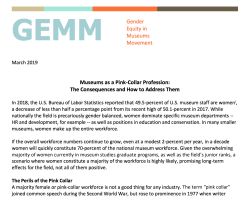Workplace Misery: Advice for Supporting Colleagues
Posted: December 4, 2017 Filed under: Museum, museum career, museum staff, Nonprofit Leadership, Self-Aware, Work Habits | Tags: career, museums, nonprofit, self-worth, workplace culture 1 Comment
If you’re automatically sure that you know what reality is, and you are operating on your default setting, then you, like me, probably won’t consider possibilities that aren’t annoying and miserable. But if you really learn how to pay attention, then you will know there are other options. It will actually be within your power to experience a crowded, hot, slow, consumer-hell type situation as not only meaningful, but sacred, on fire with the same force that made the stars: love, fellowship, the mystical oneness of all things deep down. David Foster Wallace, “This is Water,” a commencement speech delivered at Kenyon College, May 2005
Over the past month, we’ve spoken to several people who are more than miserable in their jobs. We’ve also read tales of workplace misery on Facebook where individuals question how they should move forward in the wake of situations that redefine the phrase, “You can’t make this stuff up.”
Some of these situations are truly horrific, some frustrating, and some just examples of a museum worker’s really, really bad day. But one thing seems to be universal: Everybody tells the complainer to quit, to leave, to find the nirvana job. These comments come in a chorus. Some are couched in concern for the worker’s mental health as in “this can’t be healthy for you.” Some are little red flags demonstrating the listeners have heard enough as in, “I can give you some phone numbers if you think you’re ready to move on.” And some respond only to the technical details of whatever workplace horror the story outlines.
Maybe there’s another way though. Maybe since most of us aren’t social workers, psychologists, or HR people, maybe, in Post-Weinstein America, we ought to respond a little differently. First, remember you’re the listener or, in the case of Facebook, the reader. That’s your job. Just listen. Next, establish if the person feels safe at work. If they do not, are they experiencing sexual harassment, workplace bullying or simply horrific leadership? If they are not safe, if they are bullied or harassed online or in the workplace, a site like AAUW or the EEOC (and there are many more) can help with filing a harassment claim.
Part of listening–regardless of the nature of the individual narrative–is that leaving one job and getting another isn’t as simple as ordering on Amazon. Leave aside the competitive nature of today’s museum job search, there are also questions of partners, partner’s jobs, real estate, children, extended family, and love of place that tie us all to our positions. While walking out may be a healthy choice, it’s not always possible, and brings with it its own set of stresses, not least of which is no pay. So remember, advocating quitting is not always helpful.
And don’t let the person narrating a workplace complaint believe that because they work for the Who-Knows-Where-Historical-Society that this is business as usual, that non-profits aren’t subject to employment law. They are. Yes, it may require more courage or at least a special brand of courage to take on the big wigs in a small community as opposed to walking into HR at a big museum, but the law still applies.
Last, remember that sometimes humans just need to be heard. They need to know they’re valued. Channel your inner grandma: Smile and look people in the eye. If you can’t say anything nice, be quiet. Be kind. Be respectful. Say thank you. Model the place you want to work in, and build a better museum work culture.
Joan Baldwin










Loving this post. Collegial kindness, active listening and presence are powerful. Thank you.